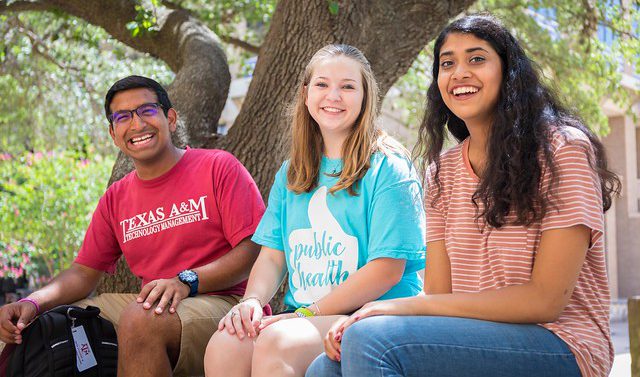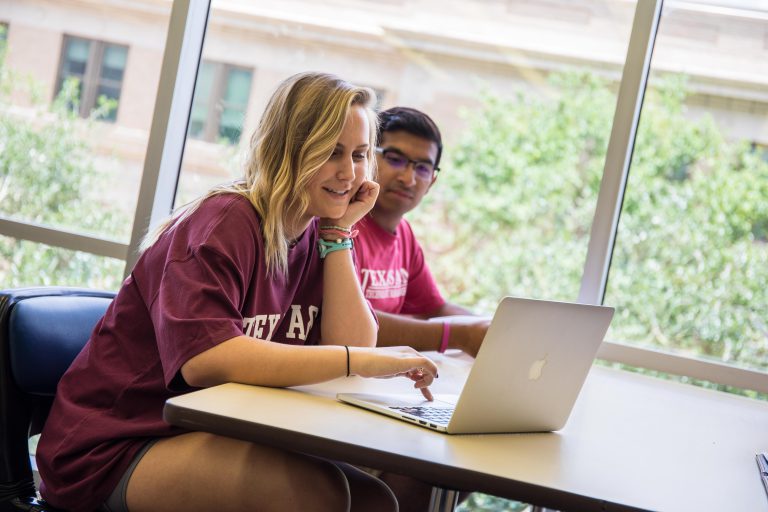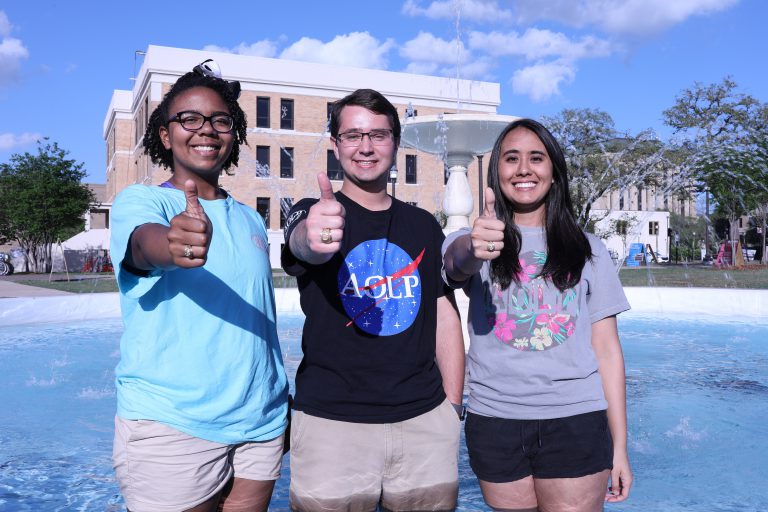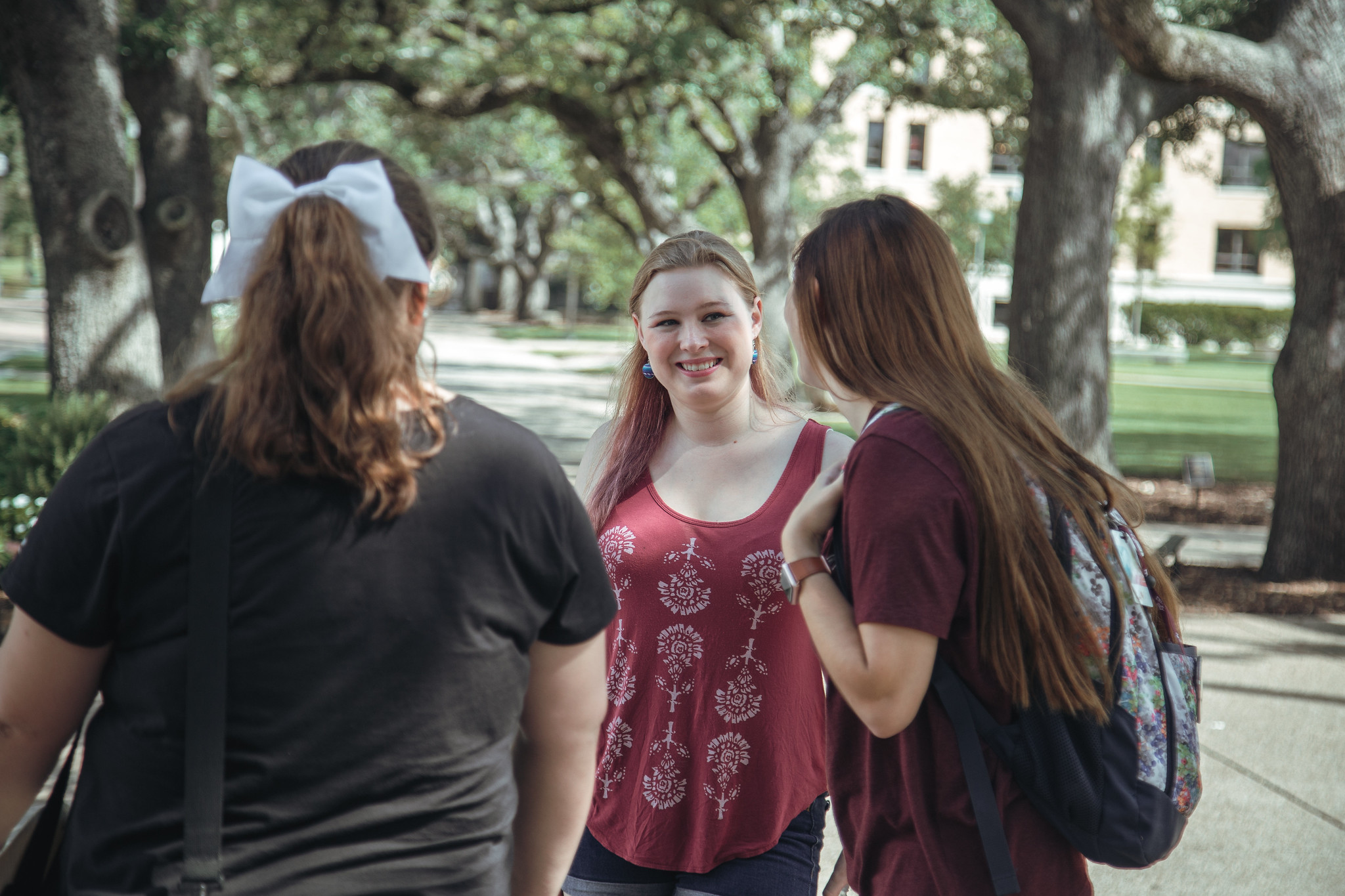If you require alternative means for access, please email Monica Colson for assistance.
First time visit
Regular log-in page
First time visit
Regular log-in page
The outbreak of coronavirus disease 2019 (COVID-19), has been stressful for many people and communities. Fear and anxiety about a disease can be overwhelming and cause a host of emotional responses. This page suggests ways to care for your mental health during these experiences and provides resources for more help. It also describes feelings and thoughts you may have during and after physical distancing and/or self-isolation.
Adapted from the CDC and SAMHSA
Everyone reacts differently to stressful situations such as an infectious disease outbreak that requires social distancing and/or self-isolation.
People may feel:
This video is designed to normalize and validate TAMU students’ emotional experiences in regards to COVID-19. In addition to providing students with support, this video discusses healthy ways to take care of your mental health, while practicing physical distancing, and resources to cope. We also provide information regarding overall wellness and ways to actively engage in self-care.
Aggies Reaching Aggies is a brand-new Suicide & Prevention Peer Educator Program. Volunteers will facilitate Gatekeeper presentations on the topic of suicide prevention, support, and mental health to fellow students.
This month is dedicated to bring awareness on campus and help end the stigma about suicide. We will have a variety of programs and events for students, faculty, and staff. Please stay tuned for more details!
Empower yourself to recognize and help those who are struggling by becoming more informed and prepared through our various training opportunities. Learn more about QPR training, Campus Connect, Gatekeeper 2.0, and Kognito.
Counseling & Psychological Services offers many services to help support Texas A& M University students. Learn more about crisis intervention, group counseling, individual counseling, and workshops.
There’s no single cause for suicide. Suicide most often occurs when stressors converge to create an experience of hopelessness and despair. Learn more about the warning signs of suicide and how you can be more prepared.
If you have lost a loved one to suicide, you are not alone. Losing a loved one to suicide is a devastating loss that shatters our sense of a predictable world. It may take time, but it is possible to heal from this loss. Learn more about the support offered for survivors of suicide loss.
HelpLine provides, by telephone, peer support, information, referrals, and crisis assessment and intervention for Texas A&M students. HelpLine is open from 4:00 p.m. to 8:00 a.m. on weekdays, and 24 hours a day on the weekends. Learn more about HelpLine.
The Suicide Awareness & Prevention Office hosts various events throughout the year to raise awareness about suicide prevention and support those who have been impacted by suicide.
The CAPS Excellence Fund supports Suicide Awareness & Prevention programs as well as overall mental health initiatives for Aggies. Please consider donating to one of the many organizations that contribute to efforts to prevent suicide.

QPR offers a traditional approach to understanding the impact and prevalence of suicide as well as intervention tools. This interactive training prepares students, faculty, and staff to recognize the warnings signs, know what to say to someone who might be at risk for suicide and where to refer individuals for help.
Fall '23 Open Session QPR Gatekeeper Trainings:
Campus Connect is an interactive training specifically for college students that provides participants opportunities to enhance their knowledge, awareness, and skills concerning college student suicide. This training focuses on increasing gatekeepers’ knowledge about students in a suicidal crisis, developing empathic listening and communication skills, and how to compassionately and directly ask students about their suicidal thoughts.
Fall '23 Open Session Campus Connect Gatekeeper Trainings:


Gatekeeper 2.0 offers participants (students, faculty and staff) who have already completed QPR or Campus Connect a chance to refresh their skills and reflect on the challenges of talking about suicide. Participants will have an opportunity to discuss if/how they have used their previous training in a confidential environment. Additionally participants will gain confidence through additional practice and a deeper dive into information about suicide and counseling.
Fall '23 Open Gatekeeper 2.0 Trainings:
According to the American Association of Suicidology, 86% of college students who died by suicide did not seek campus counseling prior to their death. Given this statistic it is necessary for members of the campus community to learn to recognize and support students who are in distress.
Kognito At-Risk is a 45-minute, online, interactive gatekeeper intervention training program that teaches students, faculty, and staff how to identify individuals exhibiting signs of psychological distress, including depression; approach individuals to discuss their concerns; and make referrals to Texas A&M Counseling and Psychological Services and other community resources. There are two versions you can use: At-Risk Peer Training & At-Risk for Faculty & Staff.
Anyone (students, faculty/staff, family) can submit a Tell Somebody report if they are concerned about an Aggie.
Hate is not an Aggie value. Individuals may use the online report form to report hate/bias incidents.
Students and Faculty/Staff can participate in Suicide Awareness & Prevention Training.
Student Assistance Services can conduct Student Welfare Checks among other services.
CAPS counselors are available to consult with staff/faculty, family, and friends who may be concerned about a student. Consultations may occur in-person at the CAPS office or over the phone. During consultations, CAPS counselors maintain the confidentiality of students who are clients to the fullest extent of the law.
Kognito At-Risk is a 45-minute, online, interactive gatekeeper intervention training program that teaches students, faculty, and staff how to identify individuals exhibiting signs of psychological distress, including depression; approach individuals to discuss their concerns; and make referrals to Texas A&M Counseling and Psychological Services and other community resources. There are two versions you can use: At-Risk Peer Training & At-Risk for Faculty & Staff.
The National Alliance on Mental Illness (NAMI) provides an excellent resource titled, "Want to Know How to Help a Friend?"
Active Minds provides multiple resources for supporting our friends.
The Jed Foundation provides an informative resource titled, "Help a Friend in Need".

Copyright 2024 • Counseling & Psychological Services | • All Rights Reserved. • Hosted by Division of Student Affairs Department of IT
